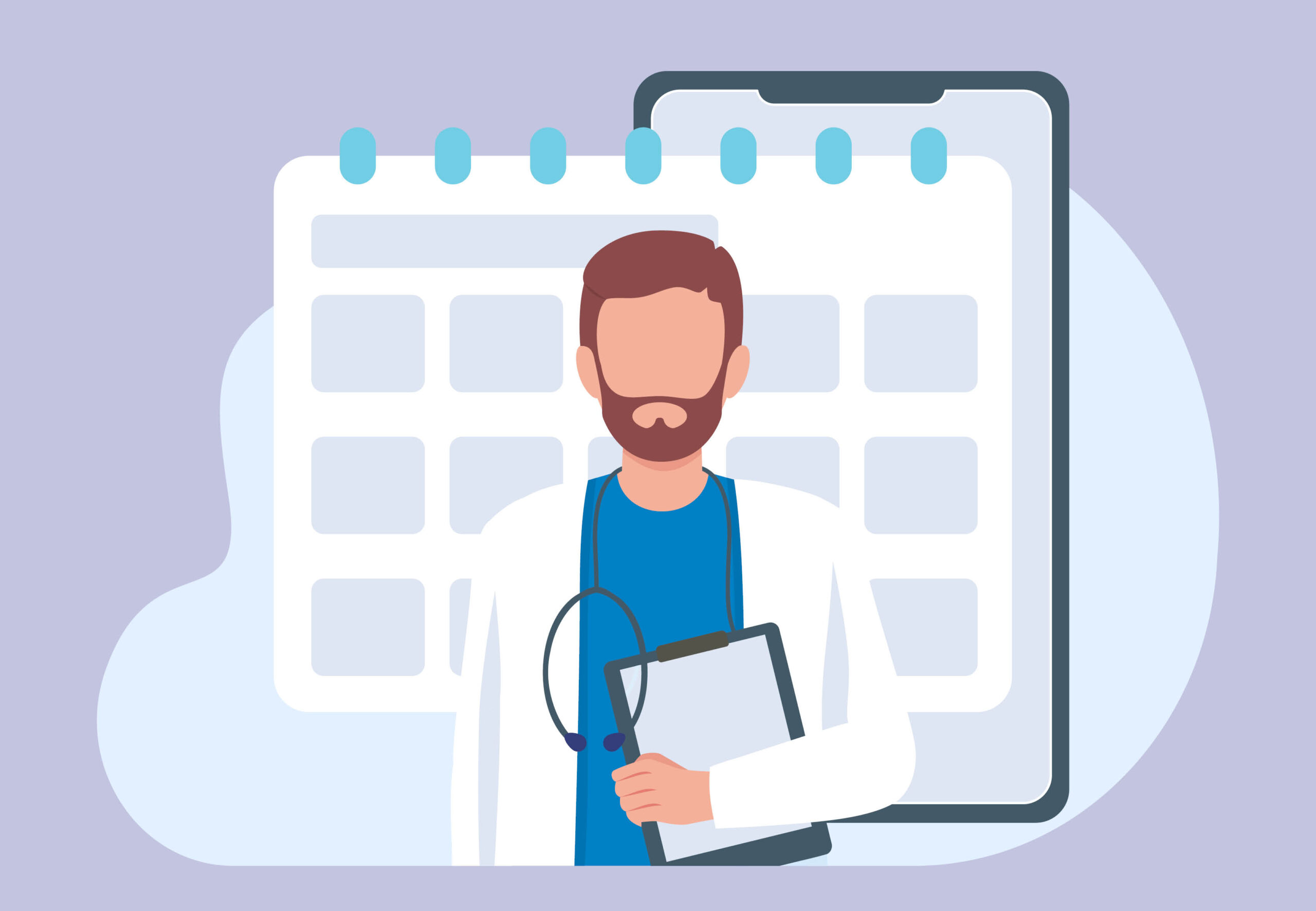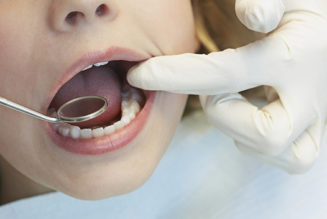
If you’re an adult male, the odds are good that you’ve avoided scheduling a regular health screening.
SPOILER ALERT: That’s not the best idea, especially when the candles start to add up on your birthday cake.
Regular physical exams offer important insight into your health and body as you age. It’s a way to detect health issues before they become … well, significant health issues.
Yet a 2023 survey by Cleveland Clinic found that almost half of men (44%) DO NOT get an annual physical. The survey was done as part of Cleveland Clinic’s national MENtion It® educational campaign.
Perhaps knowing what happens during a physical exam can help change that number for guys. For more on what to expect during a screening, we turn to primary care specialist Daniel Sullivan, MD.
What is a men’s wellness exam?
Think of a wellness exam as an opportunity to verify that you’re as healthy as you think you might be.
Not every issue in your body is an obvious one, after all. Bruises and broken bones are easy to see. But it’s a little tougher to spot high cholesterol levels or elevated blood sugar with the naked eye.
Tests done during a standard wellness exam can reveal “hidden” issues that deserve attention.
“You can’t treat a condition if you don’t know it’s there,” notes Dr. Sullivan. “Once we learn about an issue, we can consider options to appropriately address it and prevent an illness down the line.”
How often should you have a physical exam?
If you’re in good health, the general recommendation is to start getting regular wellness exams at age 35. “After that, if you’re feeling good, going once every few years is plenty until age 50,” says Dr. Sullivan.
Then, once you cross the half-century mark, an annual checkup is recommended given age-related health issues that become more common. These would include:
Consider those timetables very general, though. More frequent wellness screenings may be called for depending on your personal health history, your family’s health history or lifestyle habits (such as smoking).
What can men expect at a health checkup?
Many of the tests done during a routine health exam are the same regardless of sex, gender or age. Others are a bit more specific to men and people assigned male at birth (AMAB) or your age.
Let’s break it down.
Physical exam basics
The start of an exam for everyone (male or female) typically includes some basic tests to offer a quick health snapshot. You can expect tests looking at:
- Blood pressure. High blood pressure looms as a silent killer, which is why getting a reading is critical. “High blood pressure can wear out your heart, stress your kidneys and put you at higher risk of a stroke,” explains Dr. Sullivan.
- Heart rate. A heart that’s beating too fast or too slow may provide a clue for a heart issue or other health problem. Heart rate also can be an indicator for overall fitness.
- Body temperature. A higher-than-average temperature could signal an infection.
- Breathing and heart sounds. That stethoscope providers wear around their necks isn’t just for show. The tool allows them to listen for anything unusual in your lungs or heart.
- Eyes. How your pupils react to light can offer insight into your neurological function.
- Ears. A quick look into your ear can spot a potential infection. The quick check also could reveal a wax buildup that makes hearing more difficult.
- Height and weight. These measurements allow your healthcare provider to calculate your body mass index (BMI). A high BMI can indicate an increased risk of cancer, heart disease and stroke. Drastic changes over time may signal health issues, too.
Blood test
A blood test also is generally included as part of a general wellness check, notes Dr. Sullivan. (The blood draw may be done on a separate day from your main office visit given fasting requirements.)
A blood test offers a look at cholesterol and blood sugar levels, “hidden” factors that could show the potential for heart disease and diabetes.
In addition, it can screen for viruses like HIV (human immunodeficiency virus) and hepatitis C.
“If you were exposed to either of those viruses, which you could pick up through sexual contact or something inadvertent, there are staggeringly effective treatments to put the fire out,” says Dr. Sullivan.
Prostate exam
The prostate is a small gland that’s part of the male reproductive system. It’s also a common spot for cancer to appear — especially later in life. (Fact: On average, 1 in 8 men and people AMAB will be diagnosed with prostate cancer during their life.)
It’s recommended that prostate cancer screenings begin by age 55 and continue through age 75.
“A screening may find the cancer sooner, and early treatment is better than waiting for symptoms,” states Dr. Sullivan. “It’s important to have a conversation on this to decide what path you want to take.”
Testing is typically done one of two ways:
- Prostate specific antigen (PSA) test. This blood test measures the amount of PSA in your body. Higher levels of the protein may be a sign of prostate cancer.
- Digital rectal exam (DRE). During an in-office DRE, your healthcare provider inserts a gloved, lubricated finger into your rectum to feel your prostate for abnormalities that could indicate prostate cancer. (The U.S. Preventative Services Task Force doesn’t recommend DRE given a lack of evidence regarding its benefits.)
Testicular exam
Did you know that testicular cancer is the most common cancer in younger people (ages 15 to 35) assigned male at birth? “It’s a cancer of young men,” says Dr. Sullivan.
During a wellness exam, your healthcare provider may check your testicles for any hard lumps that may signal cancer. An early diagnosis is key, as testicular cancer is very treatable with a cure rate of 95%.
(On a side note, taking two minutes once a month to do a self-exam of your testicles is highly recommended. It’s a simple process, too.)
Colon cancer test
While a colon cancer screening won’t be done in the office during your physical exam, expect to chat about your options during your visit.
Colon cancer screenings are generally recommended beginning at age 45, says Dr. Sullivan. In some cases, elevated risk factors (such as a family history of the disease) may warrant earlier testing.
It should be noted, too, that colon cancer is becoming more common in younger adults.
The “gold standard” for a colon cancer screening is a colonoscopy, a procedure where cancer-causing polyps can be found and removed. “A cancerous polyp that’s in the trash can can’t hurt you,” says Dr. Sullivan.
Some people opt for a stool test for colon cancer screening. In this test, you send a sample of … well, poop to a lab for testing. The tests can detect colon cancer but are not as accurate as a colonoscopy.
Topics to discuss at a wellness check
Expect to have a conversation about healthy living. (After all, that’s why you’re at this exam, right?) Expect to chat about the importance of exercise and nutrition for keeping your body in tip-top shape.
A wellness check also offers an opportunity to talk about (or get) vaccines, including:
- A seasonal flu shot to guard against influenza.
- Updated COVID-19 vaccines.
- The new vaccine for respiratory syncytial virus (RSV), particularly if you’re age 60 or older.
- The shingles vaccine if you’re age 50 or older.
- An updated tetanus shot every 10 years.
- The pneumococcal vaccine to guard against pneumonia. It’s recommended for adults age 65 and older and those who smoke cigarettes.
“An annual checkup is a time to talk about things that will improve not only your length of life, but your quality of life,” reassures Dr. Sullivan. “It’s worth the investment of time.”









